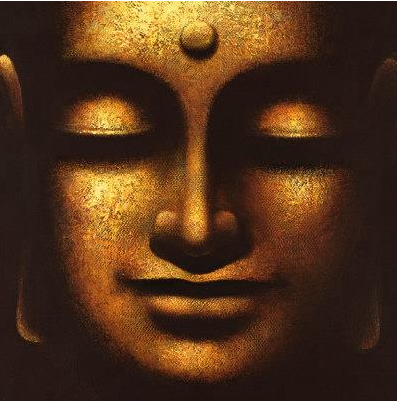
"What we are today comes from our thoughts of yesterday
and our present thoughts forge our life tomorrow:
our life is the creation of our mind. " Buddha
One of the eastern traditions that has had the greatest impact in
humanistic and transpersonal psychology it has been, the Buddhist tradition.
Fritz Perls, for example, considered one of the founding fathers of
Gestalt Therapy, he studied Zen Buddhism in Japan.
The influence of this school on its theory lies in its notion of change,
stating that it occurs when you give up the desire to change and
we become what we are (Zen concept of the paradox),
and in the great importance that he gave to the present moment,
that is, to the here and to the now (practice of mindfulness) (Shorrock, 2008).

Currently, there is an elaborate psychological interpretation of the
Buddhist tradition known as "Buddhist Psychology"
(Brazier, 2003, De Silva, 2000, Romero and Vázquez, 2005, Tsering, 2006).
This psychological interpretation of Buddhism not only has varied
literature, but also finds refuge in universities so prestigious schools
such as Princeton, Harvard and Oxford, where courses are taught,
classes and workshops
Siddharta Gautama, better known as the Buddha, was a skilled researcher
of the mind and suffering. Through his own personal experimentation
through meditation, revealed the fundamental afflictions of the mind
(ignorance, attachment and aversion), the three marks of existence
(suffering,impermanence and impersonality) and realized the Four Noble Truths
(Goleman, 1997).

The Buddha also insisted on the culture of the heart. He emphasized
the development of love or benevolence, compassion, joy or altruistic joy
and equanimity. He devoted his entire life to teaching how to end
suffering, providing the necessary knowledge so that each human
being could reach nirvana (Calle, 2009). In this way, the Buddhist
teachings are not a historical confection product of the imagination,
but rather a psychological description thorough examination of the
authentic nature of the mind (Yeshe, 2003).

Thus, Buddhist Psychology is a science of experience: it corresponds
to the knowledge gathered for more than 2000 years through
of direct observation of the mind through meditation (Irarrázaval, 2010),
developing on the terrain of confusion, pain and neurosis,
as Buddha emphasized in the Four Nobles Truths (Trungpa, 2007).
In this way, if there is something important for all the traditions of
Buddhism, is the cognitive aspect of the mind (Berkhin and
Hartelius, 2011) that can not be separated from the process
emotional (Ekman, Davidson, Ricard and Wallace, 2005)

Buddhist Psychology provides a sophisticated and comprehensive
approach to get rid of various mental / emotional disorders, taking
care to understand what types of mental activities lead to well-being
and what are harmful (Huxter, 2007).
The Buddha taught that the unbridled mind oppress people and that
to obtain peace and happiness it is necessary understand its nature:
how it works, how ignorance arises and where emotions come from (Yeshe, 2003)
Nice post! Awesome to see these two fields intermingling more and more nowadays, very hopeful stuff in troubled times.
yeahh, is very good, now psychology in the West has more resources to help people!
I like your post. Thank you. :)
thank you to :)
Congratulations @mijaelsantander! You received a personal award!
You can view your badges on your Steem Board and compare to others on the Steem Ranking
Do not miss the last post from @steemitboard:
Vote for @Steemitboard as a witness to get one more award and increased upvotes!
Congratulations @mijaelsantander! You received a personal award!
You can view your badges on your Steem Board and compare to others on the Steem Ranking
Vote for @Steemitboard as a witness to get one more award and increased upvotes!